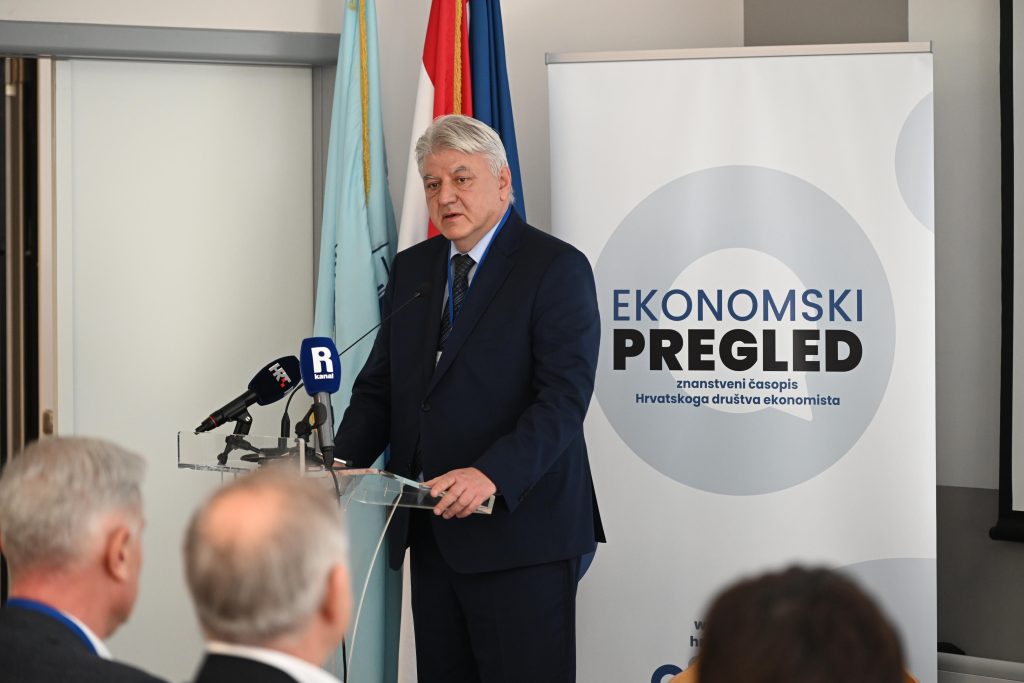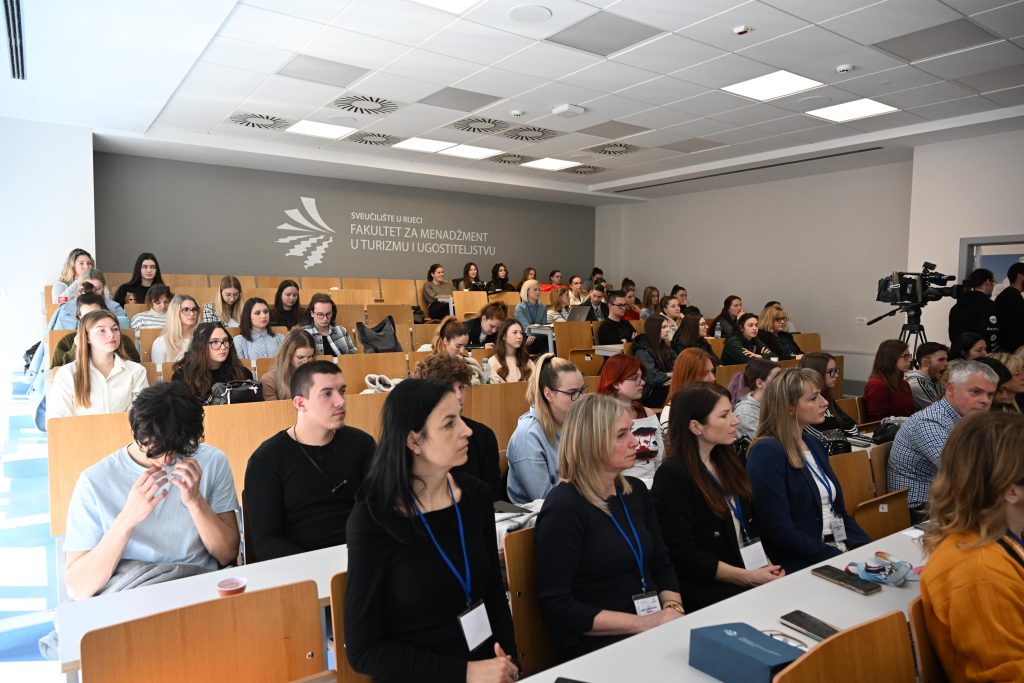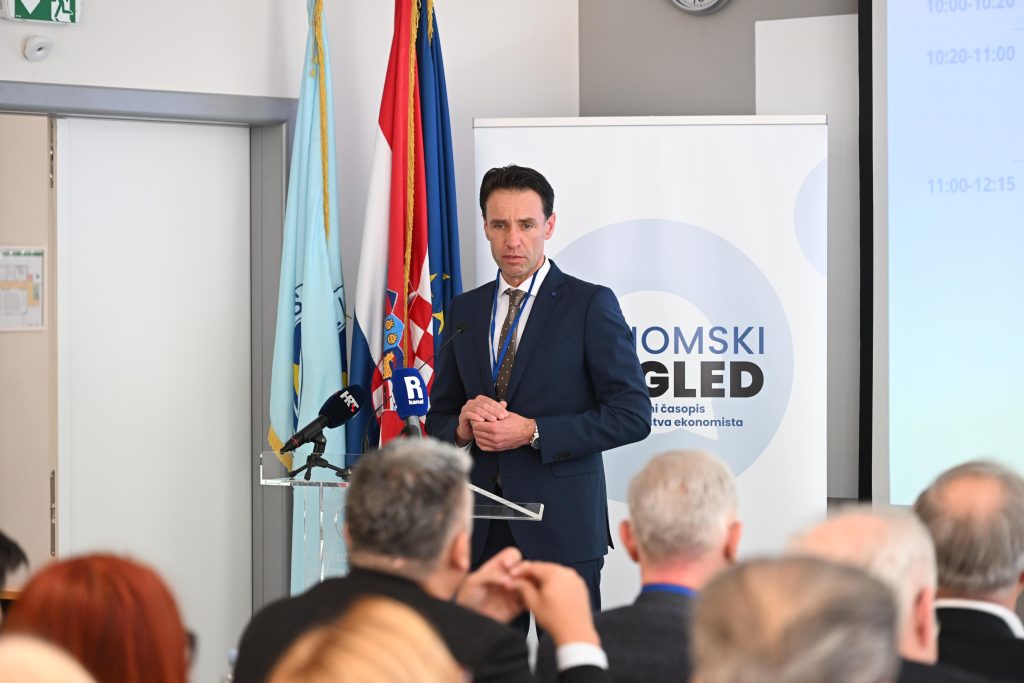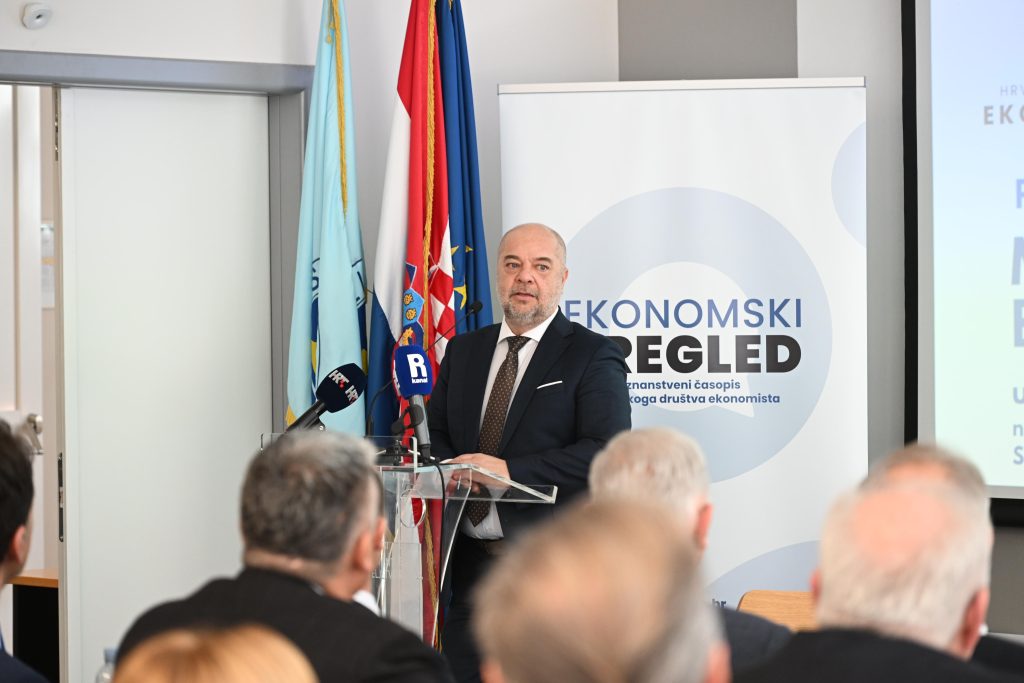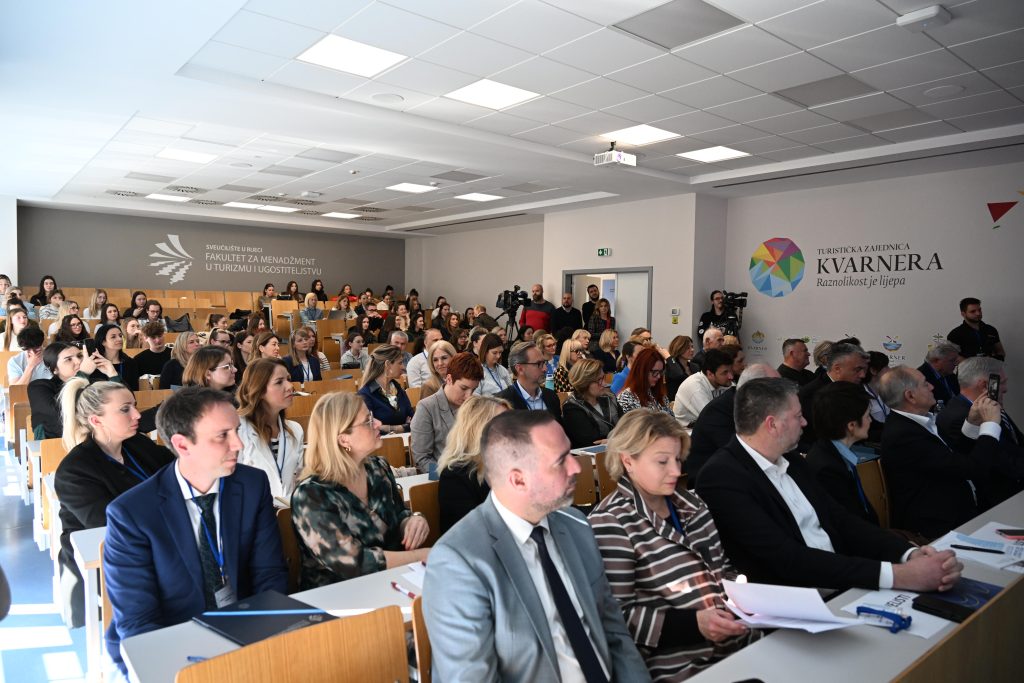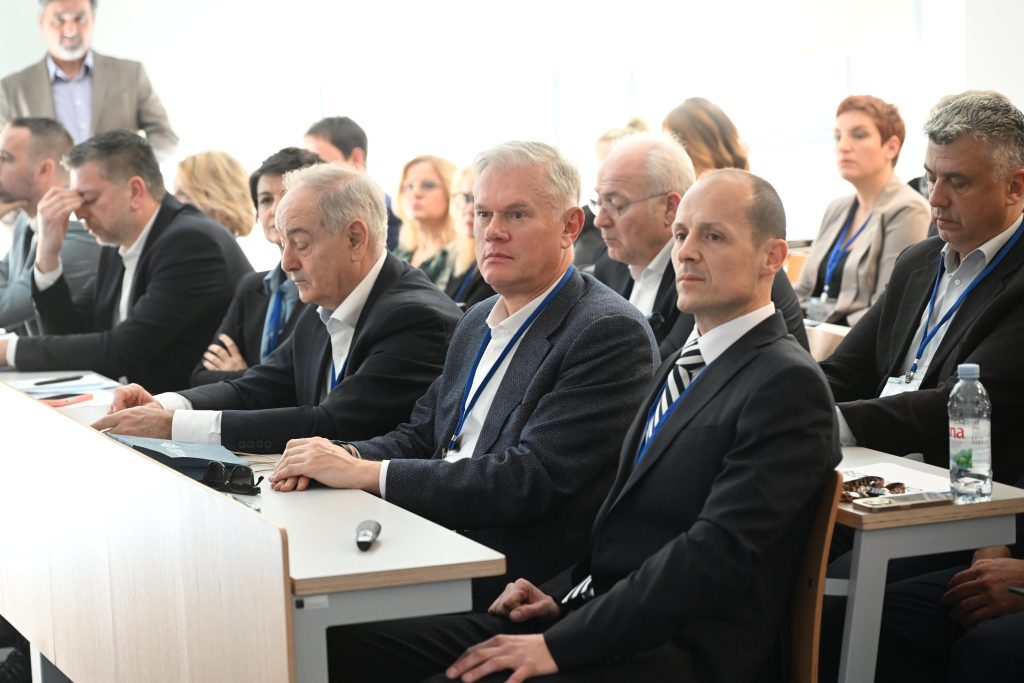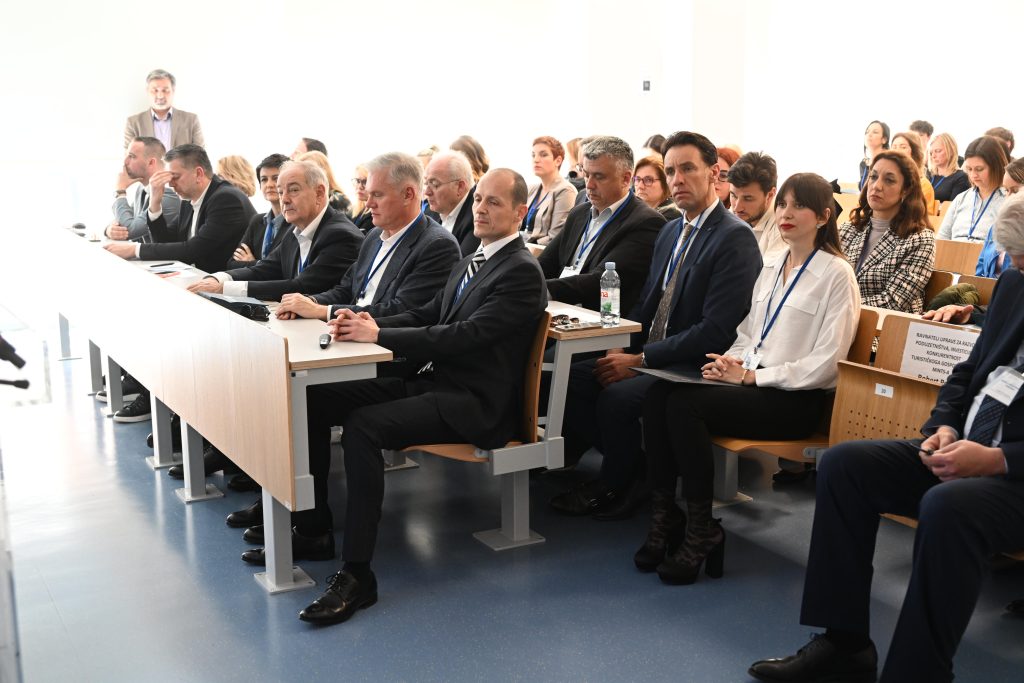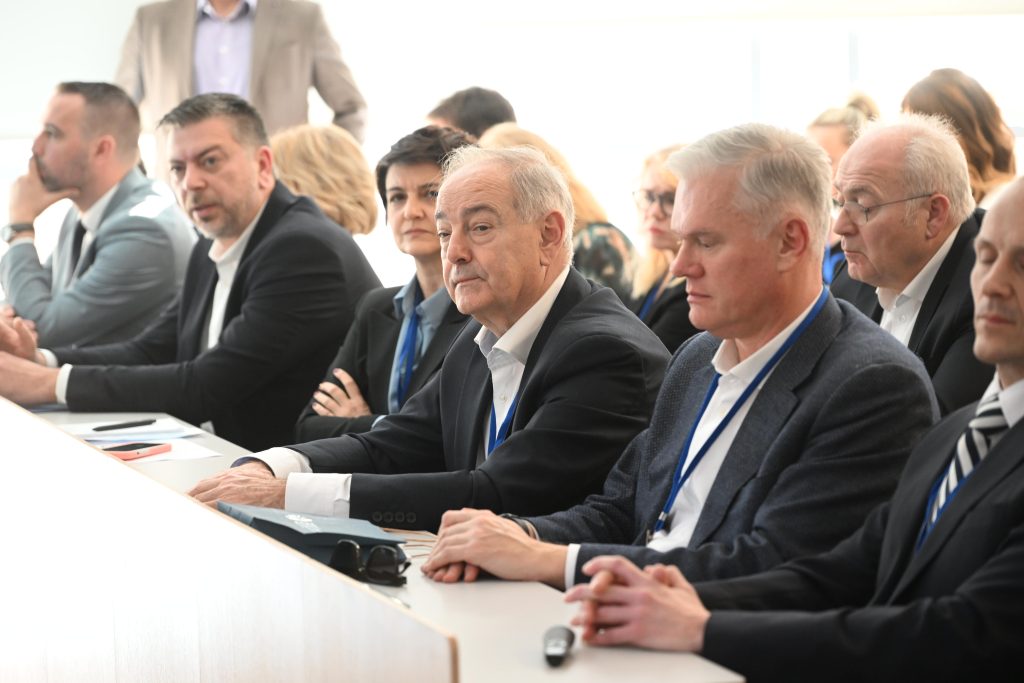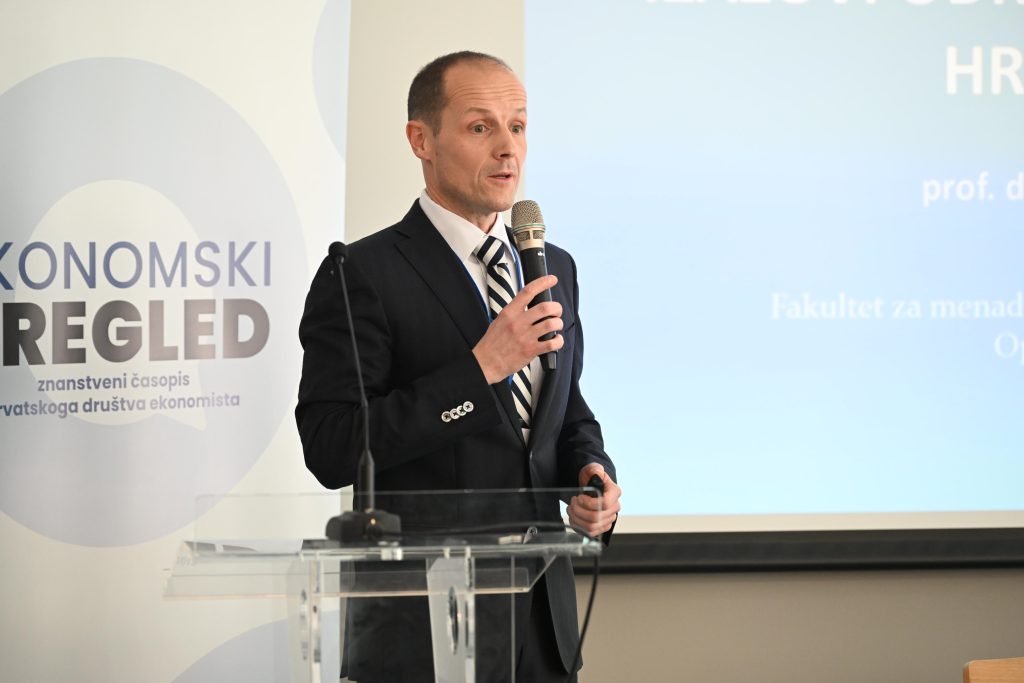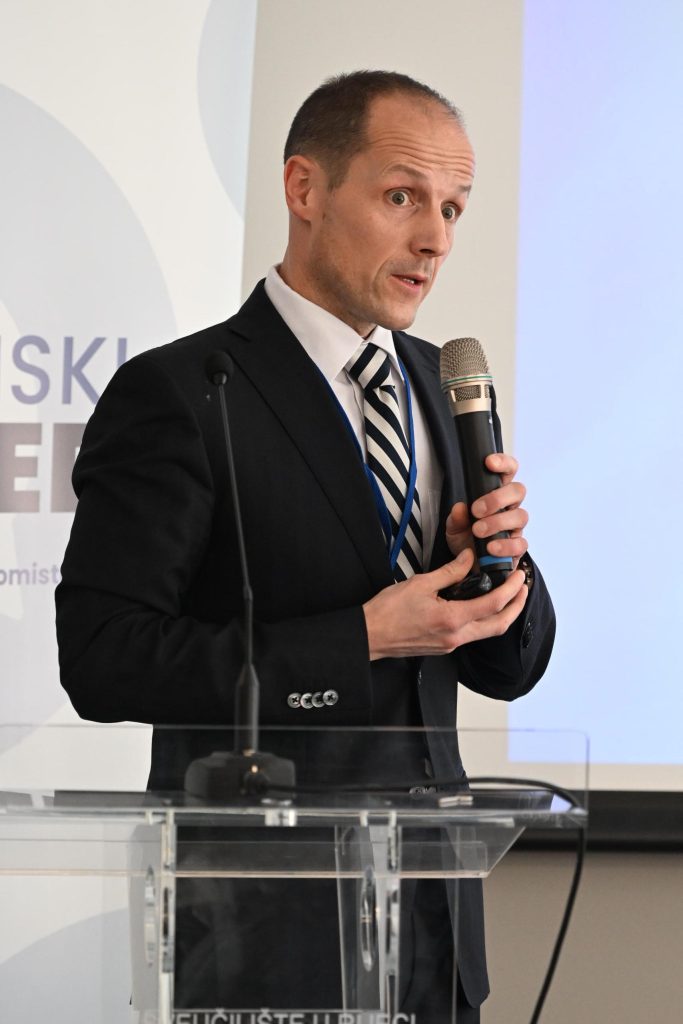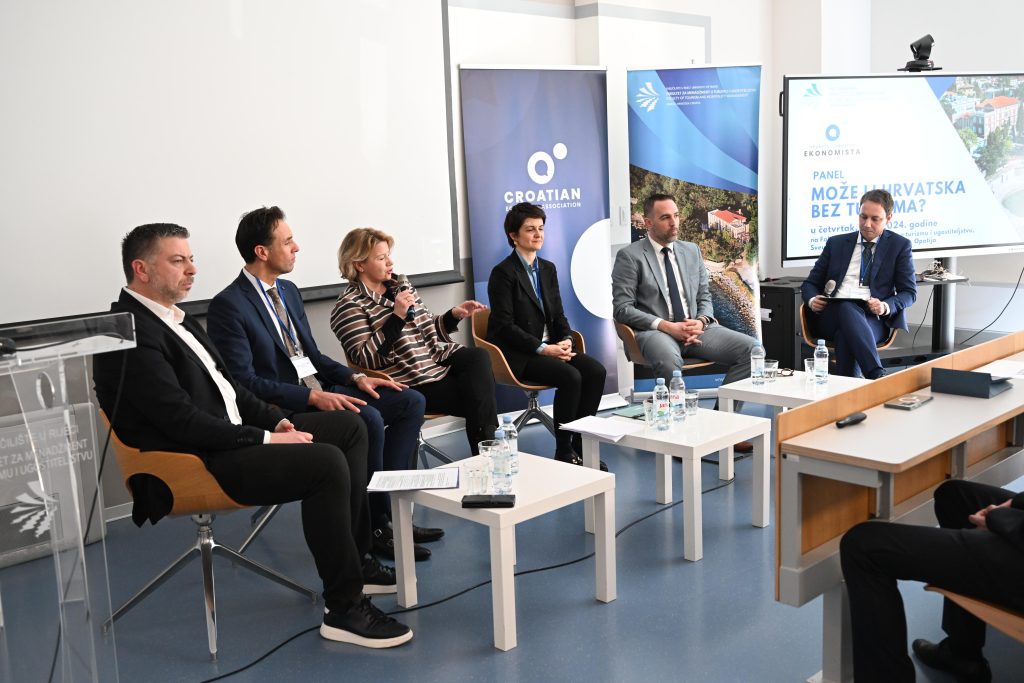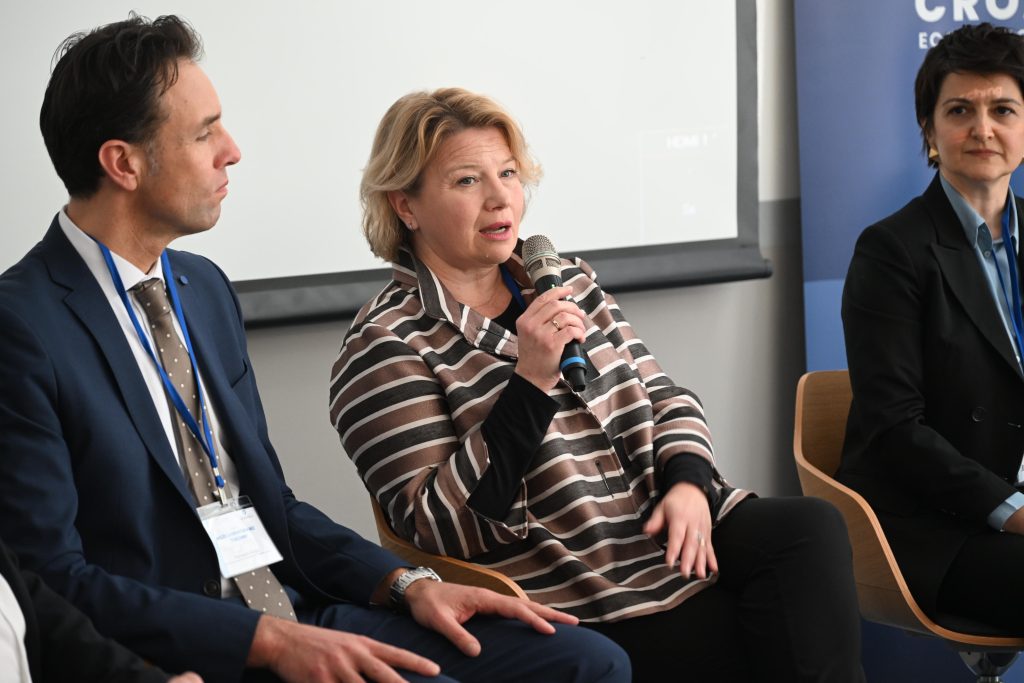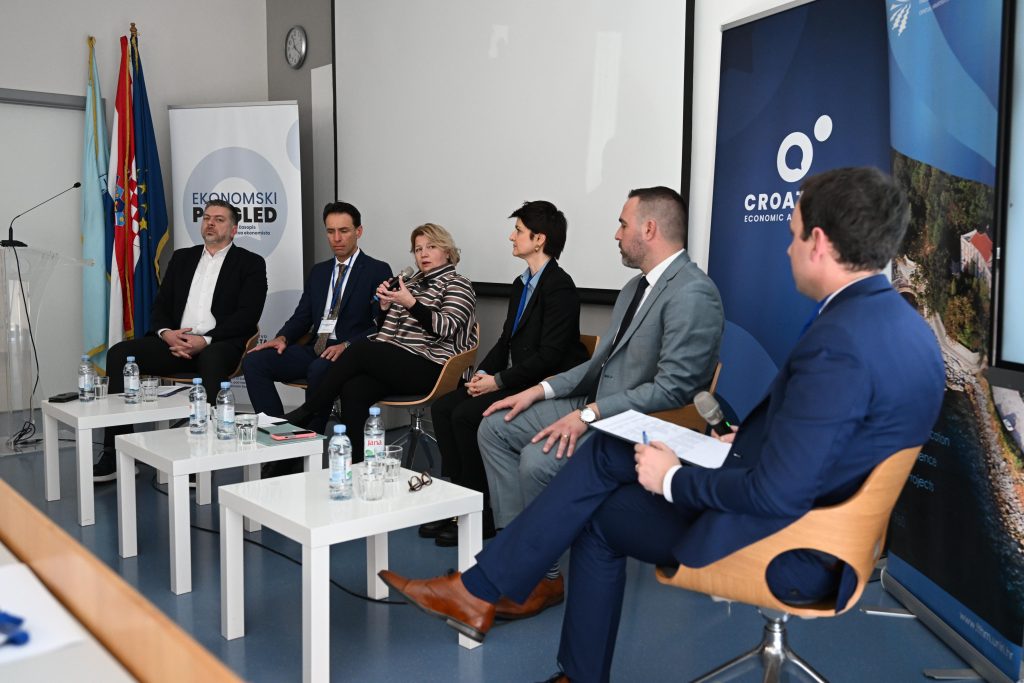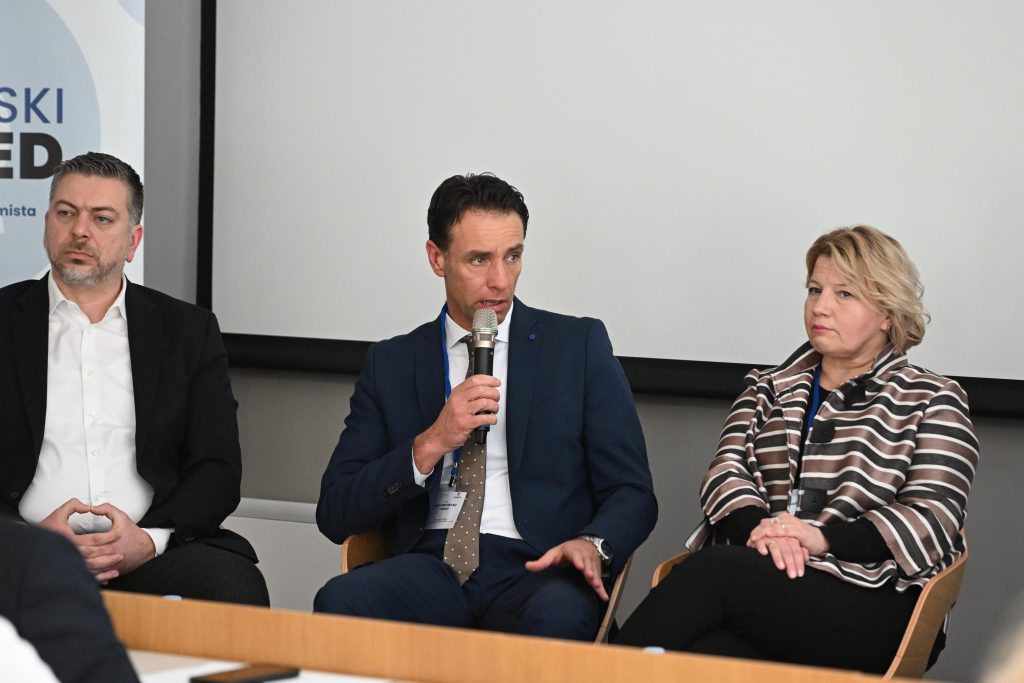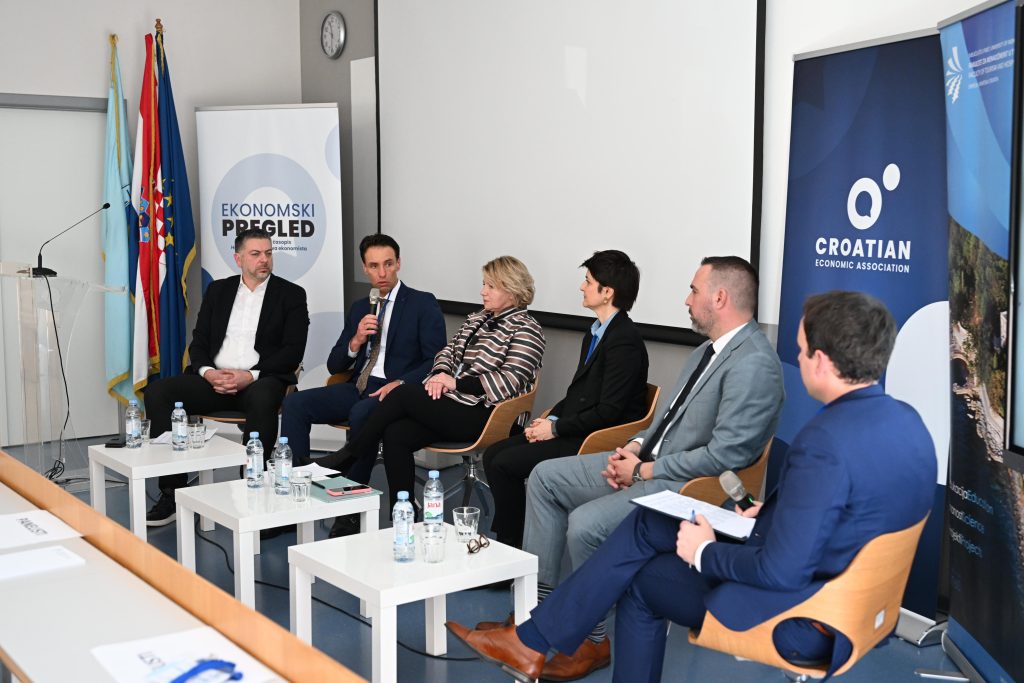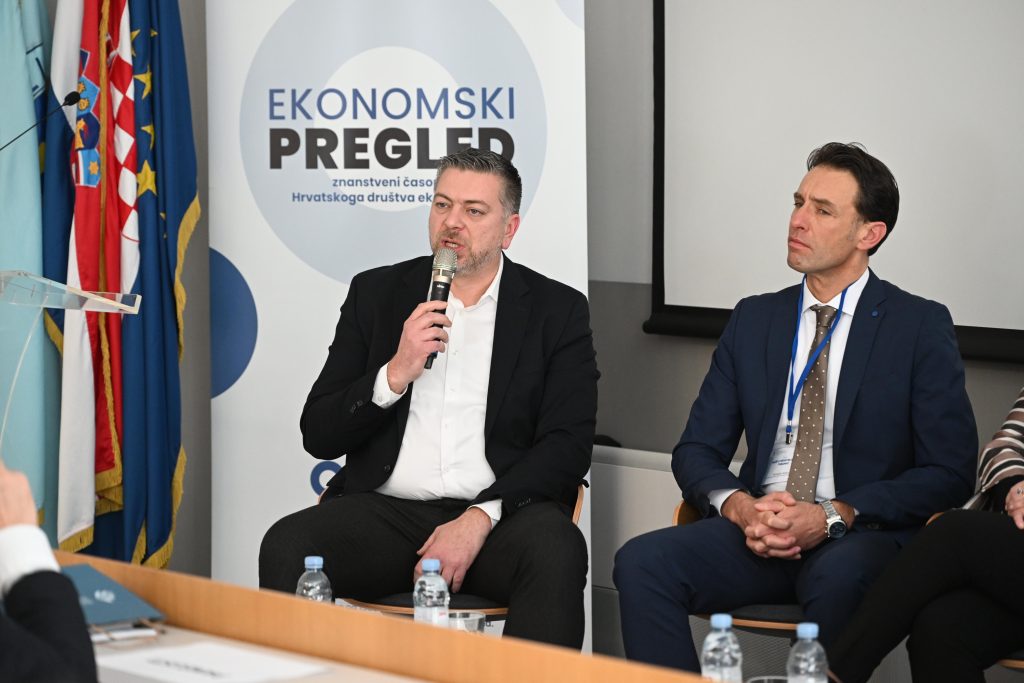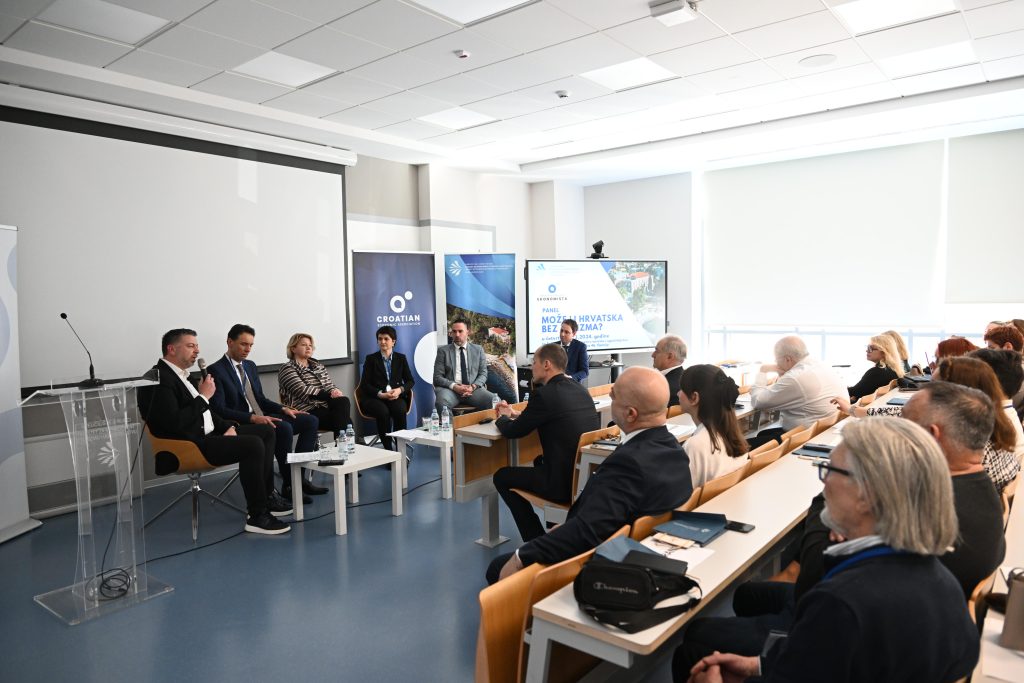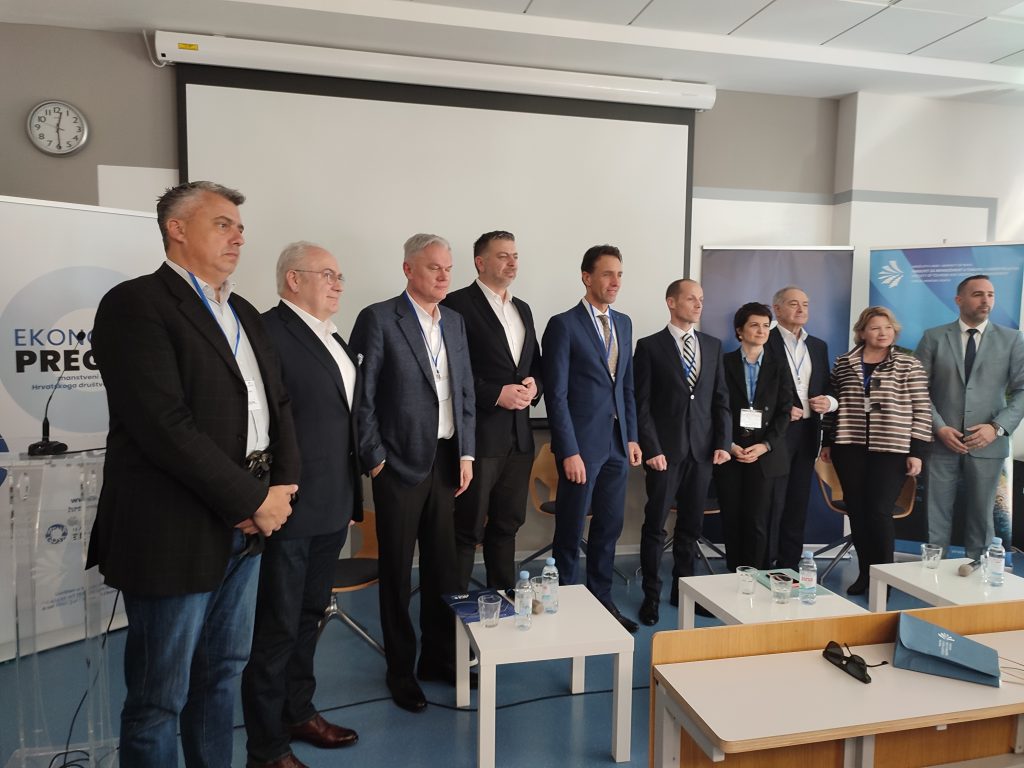On Thursday, March 14, 2024, at the Faculty of Tourism and Hospitality Management in Opatija the panel “Can Croatia do without Tourism?” was held with more than 150 participants. The organizers of the panel with this very interesting topic are the Faculty of Tourism and Hospitality Management, University of Rijeka and the Croatian Society of Economists.
In the introductory part, the participants were greeted on behalf of the organizer by prof. Ph.D. Marko Perić, Dean of the Faculty of Tourism and Hospitality Management and prof. Ph.D. Darko Tipurić, president of the Croatian Association of Economists. The attendees were addressed by Zlatko Komadina, Prefect of the Primorje-Gorski Kotar County and Opatija Mayor Fernando Kirigin.
In the introduction, Robert Pende, director of the Directorate for Entrepreneurship Development, Investments and Competitiveness of the Tourism Industry of the Ministry of Tourism and the Dean of the Faculty prof. Ph.D. Marko Perić spoke about the issue of whether the Croatian economy can do without tourism.
The panelists that took part in interesting addresses through the panel “Can Croatia do without tourism?”, with special emphasis on its sustainability and development issues in the modern environment were: Josip Ostrogović, member of the Board of ACI Ltd. for investments, marketing and retail, Fernando Kirigin, mayor of Opatija, prof. Ph.D. Dora Smolčić Jurdana,full professor at the Faculty of Tourism and Hospitality Management, assistant professor Ph.D. Katarina Bačić, member of the Main Board of the Croatian Society of Economists and Bernard Zenzerović, director of the Association of Entrepreneurs in the Croatian Hotel Industry (UPUHH).
The moderator of the panel was associate professor Ph.D. Siniša Bogdan from the Faculty of Tourism and Hospitality Management. The panel also opened up perspectives on the key development goals set in the Sustainable Tourism Development Strategy until 2030, namely: 1. Year-round and more regionally balanced tourism, 2. Tourism with preserved environment, space and climate, 3. Competitive and innovative tourism, 4. Resilient tourism, as pointed out by the Dean of the Faculty, prof. Ph.D. Marko Perić in his introductory speech. Through the joint action of all involved stakeholders from different sectors, we create better quality and more innovative tourism.
